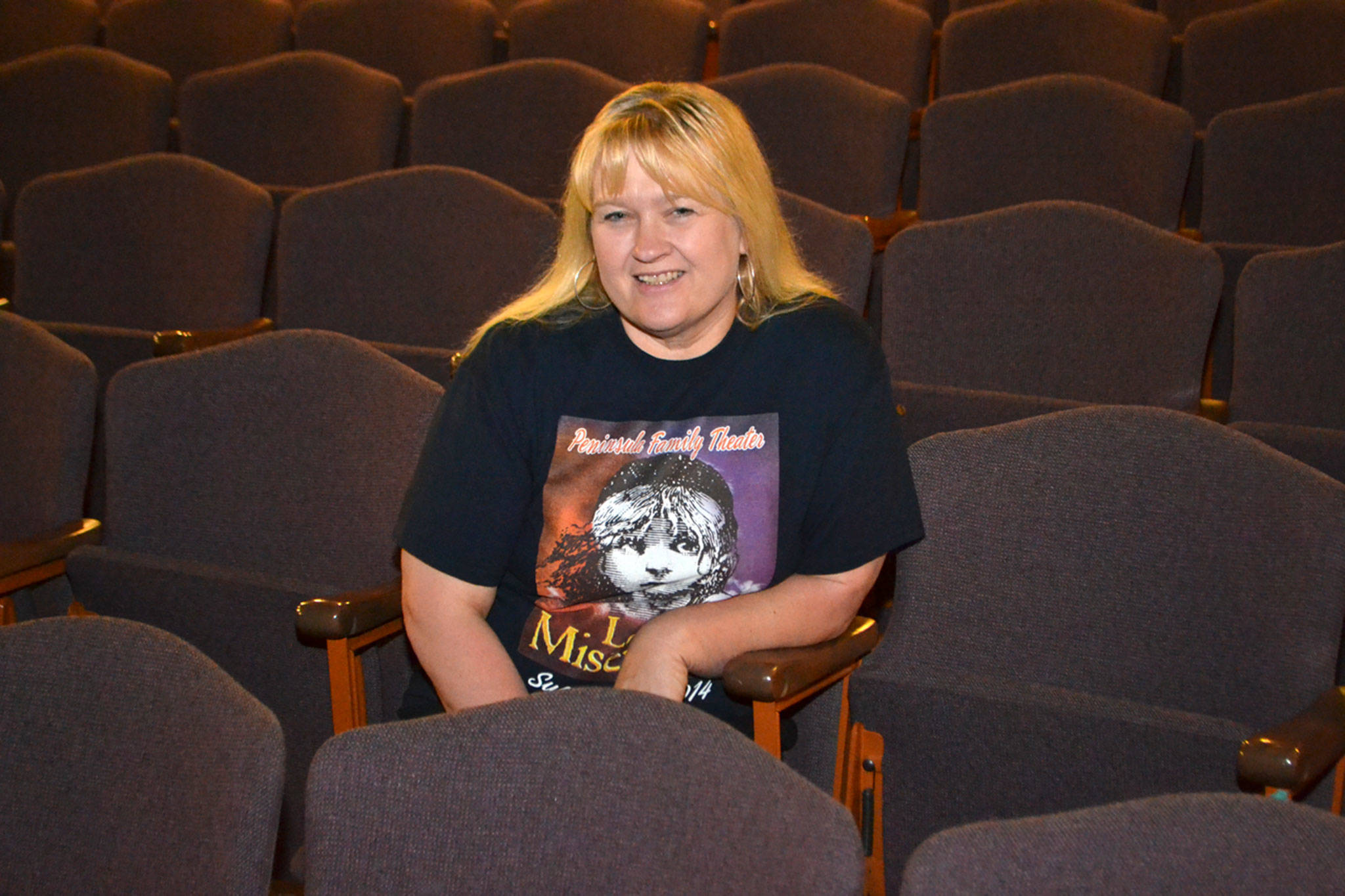Sequim High School’s drama program is on hold after Sequim School District officials chose not to renew longtime instructor Robin’s Hall’s contract three weeks ago.
Auditions for the All-School play, set for Sept. 14, were suspended — though district staff are telling students this year’s three high school plays, including the winter’s senior class play and spring’s operetta, are not canceled, just postponed.
Hall, 53, a Sequim High School graduate, acted during her high school years. She began working behind the scenes for Sequim school plays in 1994 before taking on the school’s directing duties in 2011, following the retirement of former instructor Christie Rutherford.
Hall said she was under the impression she’d be leading the drama program, an after-school program, this school year.
She and her husband Jeff, who builds sets for productions, met with district officials two weeks before school started about logistics for the plays, she said.
“They were asking me what our needs were for the operetta,” Hall said.
“Nothing like this was brought up. It was about the sound system and handicap seating and where to put the orchestra.”
Hall said she was called a week later by Paul Wieneke, Sequim School District’s executive director of human resources, and was told, “We are going in a different direction.”
Hall said she wasn’t told what that direction is.
Sequim schools superintendent Gary Neal said the drama program would continue and they’d hire someone for the program but “at this point, we’re giving full attention to bargaining with the teachers,” he said.
New guidelines
School administrators say they’re following federal guidelines under Every Student Succeeds Act, or ESSA.
Neal said district staff is trying to anticipate federal standards that will require after-school programs with public performances such as in theater and science fairs that require teaching certificates to lead the programs.
“The message we’re getting is (the federal government) is looking for certificated positions and endorsements in specific areas,” Neal said. “The reason for that is people have gone through official training and programs that can contribute to those sorts of things.”
Sequim’s assistant superintendent Ann Renker said state officials have submitted a plan to follow ESSA, which in turn would require teaching certification in after-school programs like drama. Renker said local school districts hold some authority over decision-making, such as requiring certification, until the state’s plan is approved on the federal level.
For district administrators, Renker said the change came down to three decision points. The first is a goal of creating a level of fairness, also called educational equity, for students to have the same level of educational leadership in class and in after-school programs.
The second is about preparing students for real life, and that if they have a career goal to go in the arts, a certified teacher is best trained to help, she said.
Lastly, Renker said the guidelines aren’t about snapshots in time but seeing growth over time.
Opportunity
Hall said school plays are often treated like high school sports, with students required to maintain certain grade-point-averages to participate. Like student-athletes, drama students can receive accolades, such as with the 5th Avenue Awards in Seattle too.
Officials with the Washington Interscholastic Activities Association, who oversee all of the state’s high school athletics, said it does not mandate or have any restrictions requiring coaches to have teaching certificates.
Hall has an associate’s degree and said she is interested in earning her way to a teaching certificate, “if given time.”
“I love my job,” she said. “It’s who I am. I don’t want the program to disappear. There’s a whole group of students where it’s their lives. It’s changed lives.”
Hall works as a Native American Advocate through the Jamestown S’Klallam Tribe tutoring Native American students in Sequim School District.
For her drama instructor contract, she made about $2,800 for each play, she said, and could hire two assistants for the operetta. In recent years, that included John Lorentzen as music director and Hall’s husband for sets.
She most recently directed the operetta “Seven Brides for Seven Brothers” last spring.
Hall said there are multiple aspects to leading plays, including advertising, fundraising, ticketing, props, costumes, sets, recruiting volunteers for lights and sound, and scheduling rehearsals around busy teenagers.
“We’ve built this program and it’s a big program,” she said. “It’s not a lack of work it’s gotten that big.”
If the program does hire someone soon, Hall said she may consider volunteering, depending on who is leading the productions.
“I hope they’d bring in someone who is trained to do this,” Hall said.
“To do as many plays as we have, or as big as we have, it’s going to be a hard task for them. We’ve shown what we can do and they’re very quality.”



